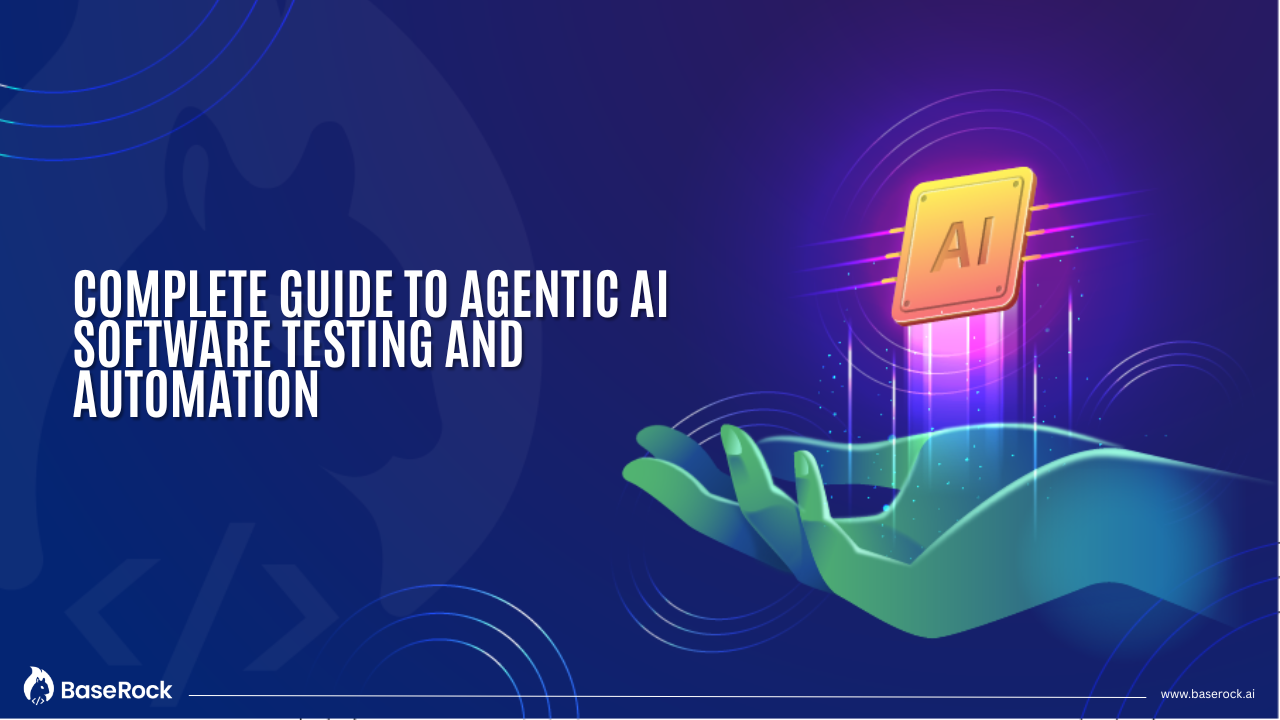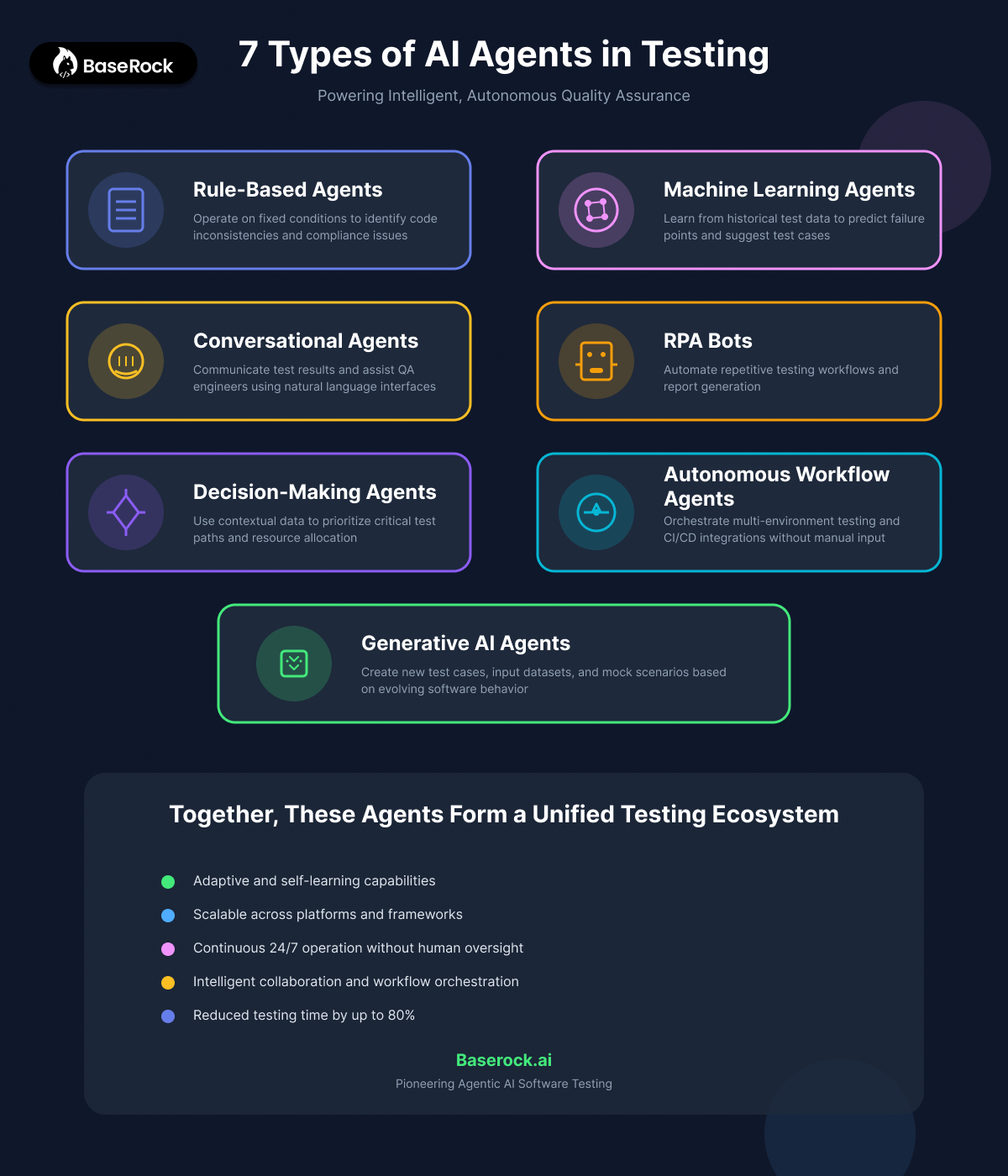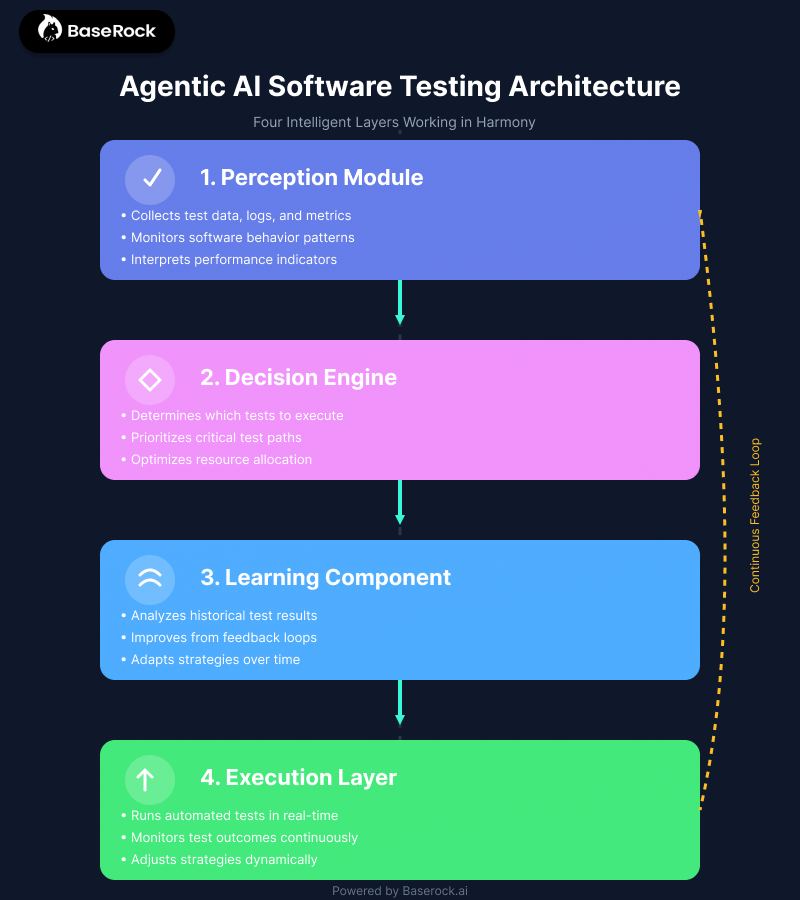.png)

Agentic AI software testing represents the next evolution in quality assurance (QA)—where intelligent AI agents autonomously test, detect, and optimize software with minimal human intervention. Unlike traditional test automation, which relies on predefined scripts and manual oversight, agentic AI empowers autonomous agents to make contextual decisions, adapt to new code changes, and continuously improve test coverage.
Baserock.ai leverages agentic AI automation to transform the way developers and QA teams approach testing. By deploying AI agents for automation, Baserock.ai ensures that testing cycles become faster, smarter, and more efficient—reducing the human load and boosting software reliability.
In agentic AI testing, multiple types of AI agents work together to deliver intelligent, autonomous quality assurance:

Together, these agents form the foundation of agentic AI software testing, empowering adaptive, scalable, and continuous test ecosystems.
Implementing agentic AI test automation unlocks significant performance and efficiency benefits:
Baserock.ai integrates these benefits seamlessly, ensuring that organizations can focus on innovation instead of repetitive testing tasks.
The architecture of agentic AI agents in testing is designed for intelligent autonomy and collaboration. It includes four key layers:

At Baserock.ai, these components form a unified AI agent workflow automation system, ensuring that every release cycle benefits from intelligent insights and self-optimization.
To fully leverage agentic AI in testing, teams should follow a structured implementation path:
These practices ensure a seamless transition from traditional automation to truly agentic AI test environments.
The future of QA lies in agentic AI automation—a space where testing evolves beyond execution into intelligent collaboration. Key trends include:
As enterprises embrace these trends, Baserock.ai continues to pioneer the evolution of agentic AI testing—making intelligent software assurance the new industry standard.
Agentic AI software testing is not just a technological shift—it’s a strategic revolution. With intelligent AI agents autonomously managing test cases, workflows, and optimizations, software testing becomes faster, more reliable, and more scalable than ever.
Baserock.ai stands at the forefront of this transformation—helping organizations embrace agentic AI software testing to achieve unmatched QA precision, velocity, and adaptability.
Q1. What is the difference between AI agents and traditional test automation tools?
Traditional automation tools follow static scripts, while AI agents dynamically learn, adapt, and make testing decisions autonomously.
Q2. How do AI testing agents work?
They perceive software behavior, make test decisions, and execute automated workflows—continuously learning from results.
Q3. What are the best AI agent testing tools in 2025?
Leading solutions include Baserock.ai, Functionize, and AccelQ—platforms offering agentic AI test automation for enterprises.
Q4. How much time can AI agents save in software testing?
Organizations report up to 80% reduction in testing time by adopting agentic AI automation frameworks like Baserock.ai.
Flexible deployment - Self hosted or on BaseRock Cloud